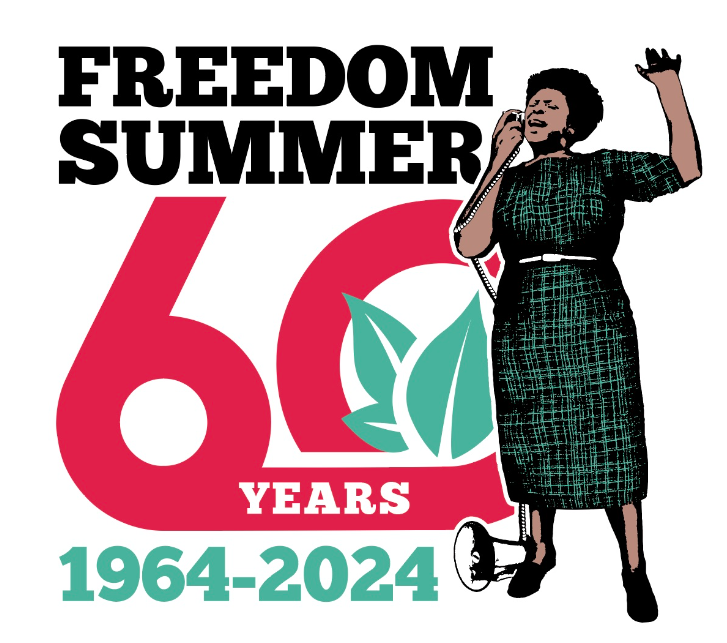Commemorate 60 Years of Freedom Summer

- This event has passed.
Commemorate 60 Years of Freedom Summer
June 21, 2024 @ 8:30 am - 9:30 pm EDT

 Sixty years ago, there came from many quarters of our nation a youthful diversity of ethnicities, opinions, lifestyles, and persuasions, a cadre of risk-takers committed to lifting the last burden from the shoulders of the world’s last oppressed woman and man. Our coming together was more than idealism that has since been celebrated as the Mississippi Summer of 1964.
Sixty years ago, there came from many quarters of our nation a youthful diversity of ethnicities, opinions, lifestyles, and persuasions, a cadre of risk-takers committed to lifting the last burden from the shoulders of the world’s last oppressed woman and man. Our coming together was more than idealism that has since been celebrated as the Mississippi Summer of 1964.
While countless pundits and chroniclers from without have vertically described, discussed and even extolled the seasonal events of that year, this is the rare occasion, some sixty years later, for a horizontal view of those who survived to tell the story — it origins, frustrations, triumphs and its aspirations as well as hope.
With the doves outnumbering the ravens in the parliament of our hair, this is our unbent and unbowed voice calling to those who must succeed us as radical agents of change. We want them to know that ours was more than theory and faith. It was more than uplifting rhetoric and freedom songs — It was pragmatic and tedious, dangerous and deadly, not only for us but more importantly for the locals who believed in us with their lives. May this passage of time reveal what the present once obscured. It comes as a special comfort to know that we were far better then than we could have ever known then.
And it remains for our successors to become better than they can now foresee.
Words crack and crumble under the strain of fully describing those 1964 days on paper, but during these days of our assembly, our authentic faces and voices can uniquely make history live and breathe and teach greater moral bandwidth for a new generation. The “nostalgia” of our being here once more together is more than the remembering of our old pain, it is the memory of our collective possibilities as well to change the world.
